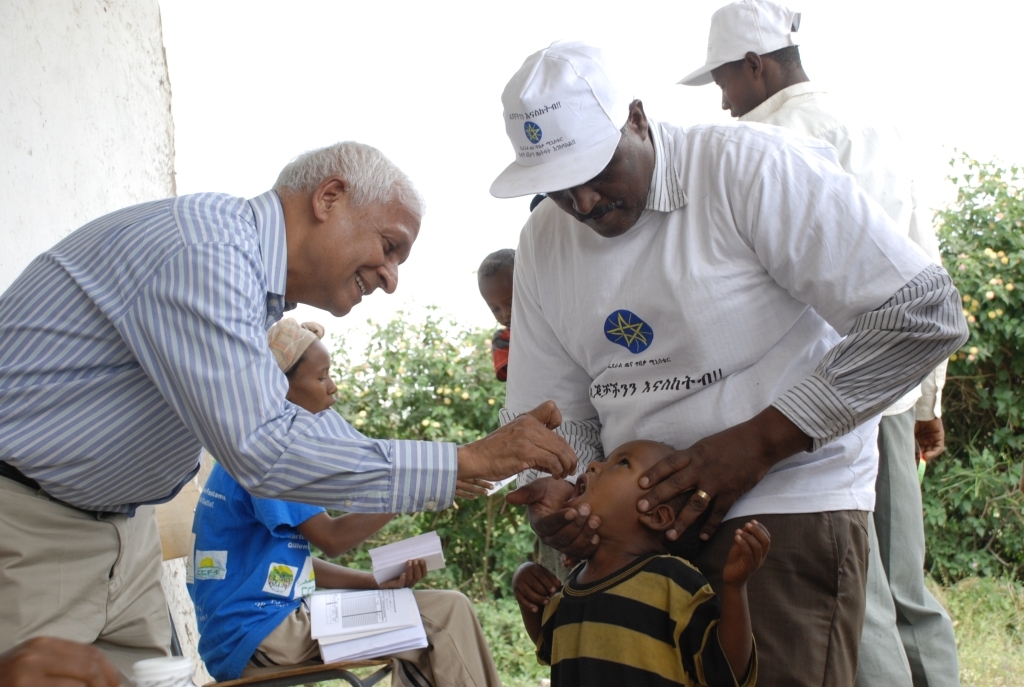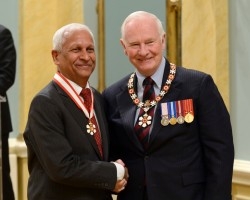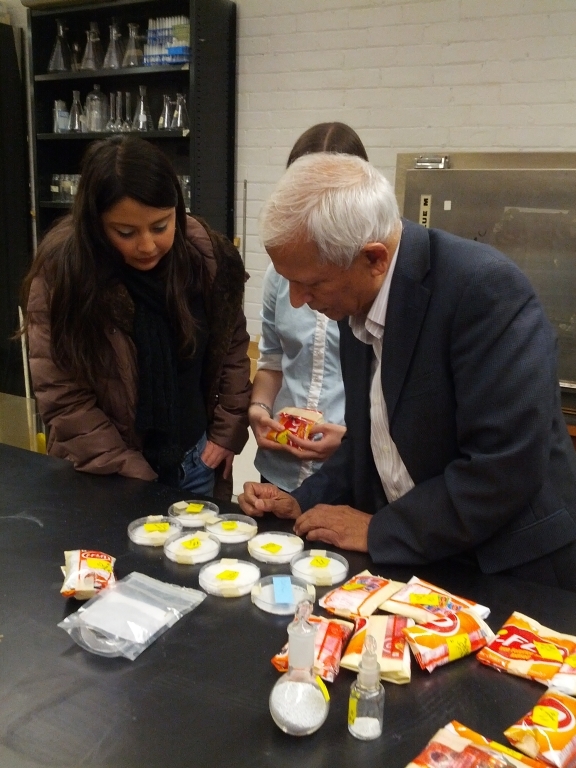
The Unsung Hero of Public Health: A Canadian’s Success in the Global Fight Against Child Malnutrition
M. G. Venkatesh Mannar is a leader in global health with 35 years of experience in pioneering effective international nutrition and development initiatives focused on the world´s most vulnerable citizens.
As president of the Ottawa-based Micronutrient Initiative (MI), Mannar oversees the organization´s mission to develop, implement and monitor cost-effective and sustainable solutions for micronutrient deficiencies, also known as hidden hunger, in partnership with others. Under his leadership, MI has grown to play a major role in the development and expansion of supplementation and food fortification and programs to address hidden hunger in Africa, Asia, Latin America and the Middle East. Funded primarily by the Canadian International Development Agency (CIDA), MI works in close partnership with national governments, the private sector and development assistance agencies. Several of these programs have already shown an impact. Every year, Mannar´s work through MI directly benefits 500 million adults and children in more than 75 countries. On December 30, 2012, Mannar was appointed an Officer of the Order of Canada, one of Canada’s highest civilian honours.
___________________________
If Venkatesh Mannar had a brush, he would paint a picture of a healthy woman with a happy child. The picture would represent all the good work that has been done in the global fight against children’s malnourishment and poverty.
To end child poverty is possible. Moreover – it’s cheap, says Mannar, president of the Ottawa-based not-for-profit Micronutrient Initiative (MI). The most important thing is to give vulnerable women and their children a chance to survive.
MI has been successfully fighting malnutrition in the world’s poorest countries for over 20 years. Mannar believes that only a healthy nation like Canada can help end the vicious cycle of poverty.
“If there is sickness, it affects an entire nation’s output, productivity and well-being – the whole community is affected,” Mannar says. “If people are sick and not performing, then the whole nation suffers.”

(Photo credit: Sgt. Ronald Duchesne)
Every year, under Mannar’s leadership, MI delivers vitamins and minerals to 500 million adults and children in 75 countries. Iodized salt prevents mental impairment; vitamin A boosts children’s immune systems; iron and folic acid reduce cognitive impairment in fetuses. Mannar has played a key role in enabling the rapid expansion of fortification of wheat and corn flour in at least 20 countries now reaching an estimated 500 million people. Several countries, including South Africa, Indonesia, Oman and Pakistan, are already seeing an improvement in micronutrient status on account of flour fortification.
These essential nutrients help mothers and their children survive in already harsh living conditions. In many countries, people still don’t have access to clean water or adequate sanitation.
Thanks to MI and global efforts, child mortality rates dropped by 40% in the past two decades. Compared to 1990, UNICEF reported 14,000 fewer daily deaths of children before the age of five in 2011.
Sometimes, global problems can be solved in simple and inexpensive ways, Mannar says. “Many people I see survive on less than one dollar a day. They are extremely poor. And we believe some of the solutions that we bring to them are very low-cost – a few pennies.”
In many countries, food production isn’t organized, resulting in improper implementation and unfair distribution of nutrients. Mannar and his employees must make sure their vitamins and minerals reach people who need them the most.
War, conflicts and political disputes are major obstacles. MI employees work in some dangerous parts of the world, such as Sudan, Afghanistan and Pakistan. “Sometimes you hit the wall because there are people who need your help but you can’t reach them. We were recently invited to work in Yemen, but we found out that the security situation there is so bad, we may not be able to send someone. And that’s hard.
Mannar and MI staff like to work in countries where the need is greatest. Mannar says the work brings joy and satisfaction when he sees a visible positive impact of MI’s efforts in these countries. In Senegal, mortality rates of children under five have halved in the last 20 years. In Pakistan, iodine deficiency rates in women dropped by 40% in the past 10 years.
Levente Diosady directs the Food Engineering program in the Department of Chemical Engineering and Applied Chemistry at the University of Toronto. Professor Diosady has been working with Mannar for 17 years. Together, they developed a method of salt fortification with iodine and iron. In a pilot study, introduction of double-fortified salt in school lunches in India has helped one million children, says Professor Diosady. Now, the program is reaching hundreds of millions of children around the world.

(Photo credit: Micronutrient Initiative)
“(Mannar) has an incredible drive to help the poor,” Prof. Diosady says. “He travels tirelessly. He never gives up. He is a very persuasive, charming man.”
Kul Gautam, former Assistant Secretary General of the United Nations and former Deputy Executive Director of UNICEF, met Mannar 20 years ago. At that time, Mannar provided UNICEF with his expertise to establish universal salt iodization programs in developing countries.
“Making iodized salt available for human consumption has long been proven to be an effective and low-cost solution to tackle the problem of iodine deficiency which afflicts nearly two billion people,” Gautam says. “It is the single most prevalent cause of brain damage and mental retardation, resulting in the loss of people’s learning and earning ability.”
Mannar directly assisted nearly 40 countries in designing, developing and implementing universal salt iodization programs against Iodine Deficiency Disorders that have resulted in nearly 3.2 billion people today having access to iodized salt and 12 million children born every year protected from mental impairment caused by iodine deficiency.
Gautam says that after the World Summit for Children in 1990, the Government of Canada took the lead in establishing the Micronutrient Initiative. UNICEF proposed that Mannar be president of the organization.
“Mannar is a humble but very thorough and efficient leader and manager,” Gautam says. “He is one of those relatively little known and unsung heroes of public health and nutrition in today’s world whose contribution to human well-being merits great praise.”
Mannar says he is happy to be a Canadian. Canada gave him support and freedom to reach and help people worldwide. “I am very pleased to be in Canada… to be able to do so much for the world, which is also a part of the Canadian spirit.”
In May, Canada invested Mannar as an Officer of the Order of Canada – the highest civilian honour – in recognition of his leadership in the global fight against malnutrition and micronutrient deficiency.
Top Photo: Mannar gives a child a dose of vitamin A during a Child Health Week event in Ethiopia. Two annual doses of vitamin A boost a child’s immune system. (Photo credit: Micronutrient Initiative)





